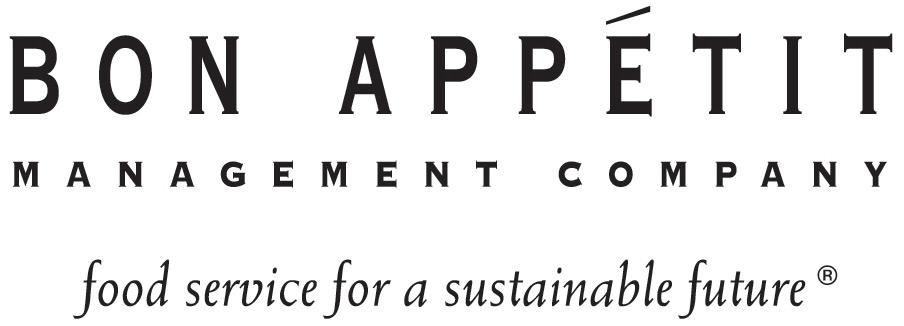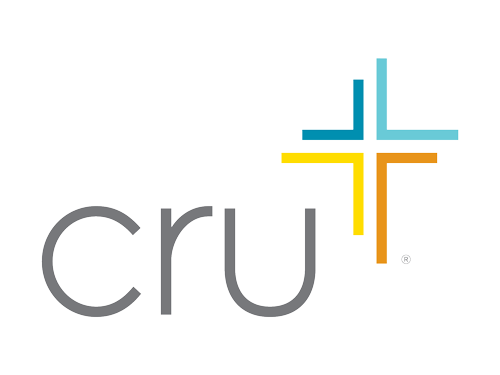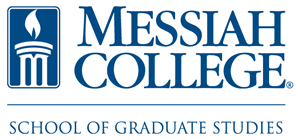2019 Diversity Conference
George Fox University, Newberg, OR
Overview
Conference Theme: Strategic Transformation: Deep, Meaningful, and Lasting Change
The CCCU invites you to join us at George Fox University in Newberg, OR for the 2019 Diversity Conference, October 4 – 5. This national event will be a resource for teams of professionals from your campus (administration, faculty, co-curricular educators) from emerging to senior leaders and at various levels of experience from beginners to experts. The conference is designed to be a space for educators within the CCCU to engage one another in dialogue, critical thinking and networking. The conference will include keynote sessions and workshops that showcase research and best practices on strategic campus transformation that will meet the needs of all students.
Attendees will walk away from the conference with:
- Policies, procedures, and practices based on theological foundations and U.S. demographic shifts
- Increased awareness of the complexity of diversity issues within the CCCU
- Theoretical frameworks and nomenclature for this work
- Application
- Opportunities to connect with colleagues across the CCCU and to network with Diversity and Inclusion thought leaders
- Exposure to content addressing diversity and inclusion concerns in higher education
Please continue to check back for additional details as they become available.
Program
Thursday October 3, 2019
6:00 pm – 8:00 pm
Early Registration & Informal Reception for Early Arrivals
6:00 pm – 8:00 pm
CCCU Multi-Ethnic Leadership Development Institutes: Past and Aspiring Participants
Those who have previously attended or would like to attend a Multi-Ethnic Leadership Development Institute Conference in the future are welcome to connect at this informal reception.
Friday October 4, 2019
7:30 am – 5:00 pm
Registration & Information Desk
7:30 am – 8:45 am
Breakfast
9:00 am – 9:30 am
Opening Session
Welcome: Acknowledging Our Full History
The Kalapuya people were among the hundreds of indigenous nations who experienced
great violence and loss when they were forcibly removed from their land – the land that
became George Fox University. As a vibrant and living people, the Kalapuya continue
to share their story and affect the world in meaningful ways. This welcome recognizes
their history, including their forced removal from this space, as a witness to our hope
in the ongoing work of reconciliation. Led by Patricia Hornback, Assistant Professor of
Intercultural Studies Coordinator, Center for Peace and Justice, George Fox University.
Worship
Michelle Lang, Campus Pastor, Warner Pacific University
Opening Remarks
Shirley V. Hoogstra, President, CCCU
Robin Baker, President, George Fox University
Commission & Plenary Introduction
Michelle R. Loyd-Paige, Executive Associate to the President for Diversity and Inclusion, Calvin University
9:45 am – 10:30 am
Plenary I: Strategic Transformation: Deep, Meaningful, and Lasting Change
Bryan Loritts, Senior Pastor, Abundant Life Christian Fellowship
10:30 am – 11:00 am
Refreshment break
11:00 am – 12:15 pm
Concurrent Sessions
Session 1: Diversity Committee Strategies and Goal Alignment: Examples from a School of Psychology
Since 2015 the Diversity Committee in the School of Psychology, Family, and Community at Seattle Pacific University has included members representing the school’s four departments: Industrial Organizational Psychology (masters and doctoral), Clinical Psychology (doctoral), Marriage and Family Therapy (masters) and Psychology (undergraduate) and the dean. Among the most unique aspects of the committee is its focus on aligning graduate and undergraduate program diversity efforts, and commitment to enhancing all student experiences and preparation to address issues of diversity, privilege, and inequality. This session will focus on committee history, activities, opportunities and obstacles, and ideas/strategies for institutions interested in launching similar work groups.
Katy Tangenberg, Seattle Pacific University
Session 2: Intentionally Diverse: Shaping a Nyack Core Value Within the School of Music
Diversity on the college campus is a treasure which must be diligently sought. It is a grace given by God for the mutual enrichment of students and faculty, for our collective intellectual and spiritual formation. At Nyack College, we believe that God is calling us today to celebrate our cultural distinctions to find a deeper and more lasting unity. In short, it is time to exchange our gifts. How such an exchange is happening at the campus of Nyack College will be the subject of our discussion. This discussion will tell the story of our journey toward a more inclusive School of Music, and its participants will recount some of the attitudes, actions, and curricular adjustments that have helped us on that journey, which is still in progress. We hope that other participants will share and compare our findings and so further enrich us all.
Willana Mack-Jones, Director of Gospel Music Program, Nyack College, and Sue Lane Talley, Dean, School of Music, Nyack College
Session 3: Out of Line: Does Inclusive Excellence Require Exclusive Perspective?
The presence of the Chief Diversity Officer at colleges and universities is at an all-time high. Given traditional structures of higher academia that triangulate onus of student success among 3 areas: administrative, academic, and student development offices, university leaders face difficult decisions on where best to place diversity efforts. In this breakout session, we will survey the dominant institutional diversity practices of CCCU universities, attendees will discuss how the pursuit of inclusive excellence, at their home institution, is organized, and finally collectively consider what the most effective, and potentially most popular, method of ensuring integrated and comprehensive campus-wide diversity plans are.
Joel Olufowote, Executive Director for Inclusive Excellence, Associate Professor of Political Science, Indiana Wesleyan University
Session 4: From Colonialism to Conciliation: Extricating our Theology From White Supremacy’s Grip
In this session, we will identify ways in which our collective theological beliefs and practices have stalled D&I efforts on our campuses and brainstorm radical strategies for aligning our diversity work with the heart of Jesus.
Dana Kendall, Director of Research and Associate Professor of Industrial-Organizational Psychology Seattle Pacific University, and Jamie Crites, Ph.D. Student in Industrial-Organizational Psychology, Seattle Pacific University
Session 5: Servicing, Mentoring, and Equipping Dreamer Students
Fresno Pacific University, a Hispanic Serving Institution, is committed to serving, mentoring and equipping dreamer students for success during and after college by creating a scholarship for undocumented students. This discussion will highlight the collaborative efforts of the Admissions and Diversity office to serve, recruit, mentor, and matriculate dreamer students on campus, and focus on hopes for future developments to better serve our dreamer students.
Cindy Jurado Hernandez, Director of Diversity and Inclusion, Fresno Pacific University, and Martha Fregoso, Admissions Counselor for Diversity & Outreach, Fresno Pacific University
Session 6: Creating a Climate for Student Success Based on Community Cultural Wealth
Shifting our focus from “deficit thinking” to a Community Cultural Wealth framework allows institutions to empower students of color and other marginalized groups. In addition, the Community Cultural Wealth framework emphasizes the importance of creating spaces that highlight specific attributes and resources possessed by students of color. Thus, students are not seen as unprepared for college, rather, that they possess all the skills and resources necessary to attain success. This session will focus on students of color experiences’ with the concept of Community Cultural Wealth and highlight how institutions can work to create a culture that promotes Cultural Wealth.
Carolina Forman, Assistant Director, Office of Intercultural Learning and Engagement, Indiana Wesleyan University, and Denise Williams, Assistant Professor, Marriage and Family Therapy, Indiana Wesleyan University
Session 7: Accessibility Ambassadors Create Momentum for Change
Representatives of George Fox University faculty, Learning Support Services, and Digital Learning services share how an initiative has enabled faculty who serve as Accessibility Ambassadors. These ambassadors share with peers the small steps they have taken that create momentum to develop deeper accessibility practices in developing instructional content. We will discuss with participants how faculty ambassadors encourage their peers in creating manageable personal plans as they learn how to make accessible digitally-based instructional materials.
Courtney Anderegg, Assistant Professor of Communication & Cinematic Arts, George Fox University, Gloria Doherty, Director of Digital Learning, George Fox University, Rick Muthiah, Director of Learning Support Services, George Fox University, and Maranda Turner, Assistant Professor of Education, George Fox University
Session 8: Cross-Campus, High-Impact Learning with a Diversity Focus: A Partnership between General Education Sociology and Community Ministries
The presenters on this session will discuss a high-impact learning partnership between Sociology faculty and Community Ministries at Point Loma Nazarene University. Through this cross-campus collaboration, students participate in co-curricular opportunities to satisfy a service learning requirement for a general education course, Introduction to Sociology. By participating in the service learning programs offered by Community Ministries, and subsequently reflecting on their experiences through the lens of key sociological concepts alongside their own cultural competencies, students effectively connect their faith beliefs and practices to community-based ministry activities in the region. The current programming includes service opportunities that encourage PLNU students to serve alongside homeless neighbors, tutor under-resourced K-12 students, and visit weekly with senior and differently-abled neighbors. The presenters will reflect on the value of this academic and co-curricular partnership in enhancing diversity-related student learning as well as adjustments and improvements made over time.
Dana Hojsack, Director of Community Ministries, Point Loma Nazarene University, and Jimiliz Valiente-Neighbours, Associate Professor of Sociology and Social Work, Point Loma Nazarene University
12:30 pm – 1:45 pm
Lunch
2:00 pm – 3:15 pm
Concurrent Sessions
Session 1: One the Road to Freedom: Moving the Race Conversation Forward Through Civil Rights Tourism
As educators, we believe that civil rights tourism can provide a unique forum for discussing contemporary issues of race, citizenship, and social justice. For the past 8 years, Messiah College has participated in the Returning to the Roots of Civil Rights Tour that takes participants to many of the key sites of the Civil Rights Movement. Specifically, this session will provide an overview of civil rights tourism as pedagogy, discuss assessment of outcomes through pre and post tour programming, and implementation of travel related professional development.
Todd Allen, Special Assistant to the President, Provost for Diversity Affairs, Messiah College, Cherisse Daniels, Assistant Director, Multicultural Programs, Messiah College, Tetsuo Takahara, President of SGA, Messiah College, and Kevin Villegas, Dean of Students, Messiah College
Session 2: The Problem With Fit: Race, Ethnicity & Organizational Culture in Christian Higher Education
Are we aware of how institutional biases and organizational culture may be working against efforts to diversify the leadership of our institutions? This session will look at current research and give participants tools to begin analyzing their organizational culture as it relates to professionals of color.
Joshua Canada, Director of Strategic Partnerships for the College of Liberal Arts and Sciences, Azusa Pacific University, and Jenny Elsey, Associate Dean of Intercultural Life, George Fox University
Session 3: Charting a Course For the Future: A Roadmap for Strategic Engagement
Creating campus culture that embrace Diversity and Inclusion is an ongoing and sometimes challenging task. It’s a journey down a road that may contain twists, turns and detours. Reaching a “visioned” destination requires strategic planning, persistence, and the intentional recruitment and deployment of available resources, both financial and human. This session will focus on one university’s approach to achieving this valued outcome. Beginning with a D&I Strategic Plan, employing assessment data in an intentional manner, leveraging administrative and faculty support, and the creation of meaningful and engaging learning experiences. These are the elements for success.
Brad Garner, Director of Faculty Enrichment, Center for Learning and Innovation, National and Global Campus, Indiana Wesleyan University, Stacy Hammons, Provost, Chief Academic Officer, Indiana Wesleyan University, and Diane McDaniel, VP of Diversity and Inclusion, Chief Diversity Officer, Indiana Wesleyan University
Session 4: When Histories Hinder Diversity and Inclusion
Many institutions tout theological traditions or noble heritages that fit comfortably with contemporary notions of diversity and inclusion. These schools often celebrate heroic histories from previous eras, such as standing against slavery or enrolling women at early dates. But these same celebrations can obscure that CCCU campuses have also operated—both in the past and present—as spaces of exclusion and homogeneity where daily realities contradict schools’ idealized heritages. Utilizing both institutional and personal examples, participants in this session will discuss and lament how appeals to past glories might hinder present inclusive efforts and workshop ideas for moving their institutions forward.
Lena Crouso, Vice President for Intercultural Learning and Engagement, Chief Diversity Officer, Southern Nazarene University, Rusty Hawkins, Professor of Humanities and History, Indiana Wesleyan University, and Karen Johnson, Associate Professor of History, Wheaton College
Session 5: Being Seen as a Leader: How Change Agents Have Impacted CCCU Campuses
It’s entirely possible to lead change in ways that advance diversity and inclusion on our campuses even if individuals don’t hold significant positional power. This session explores one approach to bringing about systemic change by introducing the concept of “leader identity development” – how individuals begin to see themselves as leaders and are seen by others as leaders because they make things happen in beneficial ways. In this session, panelists who have participated in the CCCU’s Multi-Ethnic Leadership Development Institute will each describe “one good idea” that illustrates how their campus-based leadership—through influence, tenacity, and developing coalitions of support—has made a difference in advancing the diversity agenda … ideas that session participants might adopt or adapt elsewhere.
Terrell Carter, VP and Chief Diversity Officer, Greenville University, Norlan Hernandez, Director of Online & Graduate Student Success, Biola University, TaRita Johnson, Director of the Career Center, Calvin University, Edward Jones, Assistant Dean, Multicultural Students, Moody Bible Institute, and Karen A. Longman, Professor and Ph.D. Program Director, Azusa Pacific University
Session 6: The 3 P’s of Hospitality
Hospitality is the mark of a Christian community. As Christian institutions of Higher Education, we continue to discover research that campus climate and culture is assessed very differently along racial lines. Non-white students/staff/faculty often find themselves struggling within PWIs for cultural reasons, despite holding to the same theological convictions. Using the Biblical model of hospitality, we can address issues pertaining to diversity from the individual level to the systemic level. Both the Bible and theological texts give us a way forward. This talk will provide the three realms where Biblical hospitality needs to be infused, otherwise known as the 3 P’s of Hospitality.
Ray Chang, Wheaton College
Session 7: Diversity In and Outside of the Classroom: A Holistic Approach to Pedagogy at an HSI and MSI
This presentation will allow attendees to consider successful practices to address diverse students’ learning needs. Students, particularly if they are underrepresented minorities and/or first-generation, often need faculty and staff to work together to create a holistic approach to diversifying curriculum and pedagogy in an increasingly diverse higher education landscape. Our presentation includes a training exercise to help participants assess their own understanding of diversity as relates to successful learning outcomes. We will then discuss the creation of summer STEM and humanities bridge programs that exemplify faculty and academic support staff working together to create a comprehensive program for academic support and success.
Kristen McCabe Lashua, Assistant Professor of History, Chair of the History and Political Science Department, Vanguard University, Amanda Lebrecht, Associate Dean of Student Success, Vanguard University, and Tara Sirvent, Associate Dean of Health, Natural & Physical Sciences, Director of Academic Research and Sponsored Programs, Vanguard University
Session 8: African-American Students Journey to and through CCCU Institutions
Enrollment of African American students at CCCU institutions has increased over the last 20 years. However, research shows that the African American student experience on predominantly White campuses is mixed at best. So why do African American students choose to enroll at CCCU institutions? This interactive session will examine the results of a qualitative research project where 20 African American students at six different CCCU institutions were interviewed on their respective college choice processes. Special attention is given to ethnic/racial identity and spiritual identity development in adolescents and its influence on their college choice process.
André Stephens, Vice President for Student Development, Biola University
3:15 pm – 3:45 pm
Refreshment break
3:45 pm – 5:00 pm
Concurrent Sessions
Session 1: The Executive Diversity Ambassador Initiative: Organizational Change Through Strategic Leadership Development
It’s no secret that organizational change can be daunting and extremely challenging especially in higher education. The Executive Diversity Ambassador (EDA) initiative is an innovative strategic leadership experience designed to engage senior leaders which include the president, provost, academic deans, and other cabinet leaders in reflective and robust conversations surrounding diversity and inclusion realities in Christian higher education. The EDA initiative provides curricular and experiential possibilities that can be leveraged to generate strategic thinking and buy-in that translates to incremental and/or substantive change in solidifying diversity as an institutional value within a Christian higher education context. Useful resources, tools, and strategies will be shared throughout the session for diversity professionals and advocates interested in replicating on their respective campuses.
Keith Hall, Vice President, Chief Diversity Officer, Azusa Pacific University, and Richard S. Martinez, Executive Director, Center for Diversity, Equity, and Inclusive Excellence, Azusa Pacific University
Session 2: To Dream or Not to Dream… Is That Even a Question? A Journey Into Appreciative Advising
Many colleges and universities are welcoming more students of color than ever before! We are also welcoming an ever-growing intersection of first-generation students of color. Within this intersection, many envision receiving a degree both individually and corporately, as they represent the embodiment of their families’ educational and socio-economic dreams. How do our institutions evaluate our current advising practices to best engage and empower these students towards academic and personal success? We believe that through the use of Appreciative Advising, we can gain and enhance our skills needed to journey, serve and empower students toward a thriving college experience.
Lester Larios, Assistant Director of Student Enrichment and Intercultural Development, Biola University, and Daniel Parham, Assistant Director of Undergraduate Retention and Success, Biola University
Session 3: Grace Found in Diversity and Inclusion
In a highly interactive session, representatives from a small Midwestern, rural institution will present a case study describing the development of a campus-wide initiative to create a culture that more effectively values, promotes, and supports an inclusive and diverse campus. Challenges, victories, and dreams for the future will be discussed.
Jeffrey Peck, Grace College and Theological Seminary
Session 4: “A Suitable Helper”? The Bible as a Partner in College Campus Diversity Work
This session pairs the Bible with common diversity goals to suggest that biblical texts can offer a foundation for much campus diversity work. Illustrative biblical texts will be paired with diversity goals, and participants will have the opportunity to explore additional pairings relevant for their own campus communities. The session will focus on participant skill-building in identifying connections between biblical texts and diversity work/goals/metrics beyond those covered in the workshop. Participants will have an opportunity to consider how mission-driven campus communities can articulate a biblically founded vision of diversity.
Melanie A. Howard, Assistant Professor and Program Director of Biblical and Theological Studies, Fresno Pacific University
Session 5: Engaging Difficult Conversations Around Race/Ethnicity in the Context of Higher Education
This session is designed to uncover some of the issues that hinder critical discussions around racial/ethnic difference in the context of higher education. Beyond problem identification, it will focus on advancing scholarship about practices and emerging models for effectively leading such conversations in the context of higher education.
Calenthia Dowdy, Ph.D., Director of Faith Initiatives, Philadelphia FIGHT, Edwin F. Estévez, Ph.D, Co-Founder, Estrategia Group, Kathy-Ann C. Hernandez, Ph.D., Professor, Co-Chair Ph.D. in Organizational Leadership, Eastern University, and Karen A. Longman, Ph.D. Professor, Department of Higher Education Program Director, Ph.D. in Higher Education, Azusa Pacific University
Session 6: Someone Like Me: Recruiting and Retaining Diverse Faculty and Staff
We will share the multi-prong approach engaged to increase the recruitment and retention of diverse faculty/ staff. We will review what has and has not worked from creating the value proposition; addressing implicit bias; utilizing technology to address and expand access and much more. Come join us!
Nichole Drew, Executive Director of Employee Empowerment, George Fox University, and Rebecca Hernandez, Associate Provost, Chief Diversity Officer, George Fox University
Session 7: A Model of Intercultural Leadership: Conversations with a University President and a Chief Diversity Officer
This presentation will provide participants with the rare opportunity to engage with a University President and Chief Diversity Officer as they share their developmental journey towards creating a strategic, transformational framework for diversity and inclusion rooted in biblical and theological truths.
Lena Crouso, Vice President of Intercultural Learning and Engagement, Chief Diversity Officer, Southern Nazarene University, and Keith Newman, President, Southern Nazarene University
Session 8: Who Leaves and Who Stays? Understanding Retention of Marginalized Students
It is well documented that certain populations of students of color and first-generation students have lower rates of four-year degree attainment. Those undergraduate students at Christian universities have a unique set of experiences and challenges. In order to identify patterns around retention in Christian higher education, we used qualitative methods that included interviews of 31 former undergraduates that comprised those who persisted to graduation and those who dropped out at an evangelical Protestant university. This session will examine the research and its findings, including factors that shaped decisions to stay or leave, and will end with recommendations.
Aida Isela Ramos, Associate Professor of Sociology, University of Mary-Hardin Baylor
5:15 pm – 6:45 pm
Dinner
7:00 pm – 8:15 pm
White Lotus Dragon and Lion Dance
Lion dancing is traditionally a cultural performance, popular throughout East Asia. It has been around for millennia and was traditionally used to scare away evil spirits as well as to bring joy, prosperity, and good fortune to all those involved. Today, it remains as an exciting activity that is not only an exhilarating hobby but also as a way to hold on to the awe-inspiring traditions of generations past.
Whiteness and the Christian Academy: Acknowledging the Past, Re-imagining the Future
James Baldwin wrote that “the great force of history comes from the fact that we carry it within us, are unconsciously controlled by it in many ways, and history is literally present in all that we do.” As educators, we recognize how our senses of identity and our frames of reference impact what we see, think, and do. But we often rush to reconciliation without first repenting, confessing, and telling the truth about the past. Can our rotten roots be redeemed? Is authentic solidarity and change even possible? This session explores the ways that whiteness continues to structure our institutions and facilitate ongoing marginalization. As we shift our focus beyond mere acknowledgement of the past, we’ll seek to reimagine the future as institutional leaders who respond with action and work for justice, collectively moving from hopeless resignation toward urgent renewal.
Sarah Visser, Vice President for Student Life, Calvin University
Saturday October 5, 2019
8:00 – 9:45 AM
Breakfast on Your Own
Enjoy breakfast at your leisure and enjoy this time for morning fellowship.
Team Time
This time will be provided for attendees to process and plan with colleagues from your own institution or with peers from other institutions.
9:00 am – 5:00 pm
Registration & Information Desk
10:00 am – 11:15 am
Opening Session
Woodburn High School Mariachi Band Performance
The WHS Mariachi Band is the first high school Mariachi band in Oregon. Though it emerged in 2003 as a way to reflect and celebrate the cultural majority of the students (85% Hispanic), its members reflect the diversity of the Woodburn community. Traditional instrumentation, repertoire, and music literacy is the goal. The band has performed throughout the Pacific Northwest for a variety of events, from cultural celebrations to leadership conferences to sporting events and more.
Plenary III
Part 1: A Surprising Case for a Biblical Theology of Inclusion
What does the Bible say about racial inclusion? This presentation will advocate for Christian universities to adopt an intentional policy of racial inclusion that is both thorough and restorative.
Roger Nam, Dean of Portland Seminary, Professor of Biblical Studies, George Fox University
Part 2: Systems, Values, and Beliefs: The Identity Conversations We Don’t Want to Have
“The need is not so much for [our institutions] to design new programs as it is for the nation to generate new will to jettison the hierarchy of human value.” This conversation is uncovering the identity of each of our institutions and the impact it has on our nation’s leaders.
Edwin Estévez, Co-Founder and Vice President, Estrategia Group, and Jessica Estévez, Co-Founder and President, Estrategia Group
11:15 am – 11:45 am
Refreshment Break
11:45 am – 12:45 pm
President’s Panel
The presidents will share stories of their own journey on being more aware and committed to racial and ethnic diversity on their respective campuses, as well as particular polices or practices that helped them dismantle any unfriendly and/or unintentional experiences on their campuses for students, faculty, and staff of color. Lastly, they will share what lessons from Scripture guide them in their work to ensure diversity and inclusion on their campuses.
Robin Baker, President, George Fox University
Andrea Cook, President, Warner Pacific University
David Hoag, President, Warner University
Shirley V. Hoogstra, President, CCCU
Ron Matthews, President, Eastern University
David Wright, President, Indiana Wesleyan University
1:00 pm – 2:30 pm
Lunch
2:30 pm – 3:45 pm
Concurrent Sessions
Session 1: Models of Anti-Racist Allyship: Critically Conscious Sponsorship and More
This breakout will present the result of two separate studies, the first of which examined the breadth of anti-racist allyship within the context of Christian Higher Education, resulting in a new model The Ecology of White Anti-Racism. The second half of the presentation will share the findings of a study that critically examined sponsorship as a method of anti-racist allyship, identifying promising and problematic aspects of sponsorship that undermine its effectiveness as such. Based on findings this study, a conceptual model, Critically Conscious Sponsorship, will be presented concluding with practical steps that educators can take to promote anti-racism on their campuses.
Allison N. Ash, Senior Research Associate and Postdoctorate Fellow with Race and Justice in Higher Education, Dissertation Chair Adjunct Faculty, Maryville University, and Stephen N. Risdon, Senior Research Associate and Postdoctorate Fellow with Race and Justice in Higher Education, Azusa Pacific University
Session 2: Engaging Alumni and Donors From Diverse Backgrounds to Give Their Time, Talent and Treasure
We will examine the business case to engage diverse alumni and donor communities as well as examine strategies to create an inclusive environment at our institutions that encourages giving. Debunking the myth that alumni from diverse backgrounds don’t give.
Michael Reza, Chief Advancement Officer, Vice President for Advancement, George Fox University
Session 3: The Role of Theology in Cultivating Cultural Responsibility
This session will demonstrate the role theology has had in cultivating cultural responsibility at a CCCU school, thus recognizing theology as a critical conversation partner in the work of diversity. The participants will have an opportunity to consider the theological foundations of their specific institutions and start exploring how their theological foundation could support the work of diversity. The session will conclude with a discussion of the opportunities and challenges to such an approach.
Esther Jadhav, Assistant Vice President for Intercultural Affairs, Asbury University
Session 4: The Student Becomes the Master: Designing Classroom Culture for Optimal Inclusion
Most faculty teach from an American dominant culture position: white, middle-class, Protestant, of northern European descent, etc. Most of these cultural positions were inherited and are often assumed as the norm. However, problems may arise when faculty assume that their position of privilege or power is shared by the students in their class. Because faculty are masters of their subject area they tend to assume that they are also masters of culture. But faculty must take care that as they pass along content knowledge they are not also – intentionally or unintentionally – passing along cultural assumptions which don’t always fit the situation of their students. This workshop will use the Community of Inquiry model to explore how faculty can design learning experiences that put students in a position of mastery, both of the subject but also (and perhaps more importantly) of the learning community itself.
Melinda Thompson, Abilene Christian University
Session 5: Using Student Success Data to Inform Decision-Making at Point Loma Nazarene University’s Disability Resource Center
The Student Success and Wellness Disability Resource Center (DRC) at Point Loma Nazarene University facilitates effective, reasonable accommodations in accordance with Section 504 and the ADA, educates the campus community about disability issues, strengthens collaborative cooperation within the community, and promotes equal access and opportunity for all students. From 2016-2017 to 2017-2018, the DRC saw a 29% increase in accommodations. From 2017-2018, the DRC experienced a 30% increase. Current data collected and assessed for annual report include assessment of learning outcomes aligned to standards set by the Council for the Advancement of Standards in Higher Education (CAS) and monitoring of academic progress (GPA) through students’ Academic Coaches. The DRC uses this data as a way to inform, engage, and support faculty in Christ-centered ethos of care for the whole student, to understand our vulnerable student populations, and to inform decision-making, planning, and resourcing for the DRC. Going forward, the DRC also plans to track graduation & retention rates and types of disabilities, especially students with multiple disabilities.
Nichole Hope-Moore, Director, Disability Resource Center and Tutorial Services, Point Loma Nazarene University, and Karen A. Lee, Vice Provost of Assessment and Institutional Effectiveness, Point Loma Nazarene University
Session 6: Nuestra Herencia (Our Heritage)
In this session, we will convey a strong biblical, national, and cultural imperative for an institution to increase its Latino population, providing attendees with a firm foundation to motivate and sustain the journey of increasing the presence of Latinos with whom they attend/work/live.
Reuben Rubio, Indiana Wesleyan University
Session 7: Exploring White Racial Identity Development Within Christian Colleges and Universities
This session will present the findings of a recent dissertation on racial identity development as well as implications for practice. The purpose of this study was to understand how White students who have undergone significant identity development describe their racial identity while attending dominantly White Christian colleges and universities in the United States.
Glen Kinoshita, Biola University
Session 8: Effective Policies, Programs, and Practices for Campus Diversity
“Culture eats strategy for breakfast.” Visible and invisible cultural barriers can stop inclusive change efforts and drain the energy of change-makers. Presenters will share why institutional cultural transformation must be a priority and how they’ve influenced their institution’s culture. Participants will discuss best practices for analyzing and transforming their institutions.
Alicia Miller Andre, Director, Intercultural Education and Assessment, Biola University, Walter Augustine, Director, Intercultural Education and Research, Biola University, and Tamra Malone, Chief Diversity Officer, Biola University
4:00 pm – 5:15 pm
Concurrent Sessions
Session 1: The Art of Tough Talk
The Art of Tough Talk is a model of how utilizing the arts helps groups process difficult and often polarizing matters embedded in conversations about social justice and racial bias. Unlike standard lecture style training or sermons, this tool immediately prompts audiences into facilitated conversation and activity that then leads them to education that is both insightful and empowering. This work has been presented to a significantly wide variety of audiences, college campuses, church congregations, and even with the City of Seattle as an employee training program.
Michelle Lang, Warner Pacific University
Session 2: Campus Climate Surveys: The Crucible of Defining Diversity Initiatives
How do we ensure campus climate surveys are meaningful and successful and not just a crucible for us to bear (crucible – An extremely difficult experience or situation.)? Following the full deployment of a campus climate survey over a period of 10 years, it is important to review and analyze the benefits of gathering this data. Participants will have an opportunity to directly access this process as well as openly question methodology, data collected, and any benefits of the process.
Jeffrey Carr, Point Loma Nazarene University
Session 3: Closing the Gap: Board Gender Diversity in the CCCU
In this session, literature related to the effects of board gender diversity will be reviewed. Participants will have the opportunity to compare the financial and non-financial institutional impact of increased board gender diversity with the current status of board gender diversity in CCCU affiliate and member institutions. Observations related to the board gender diversity gap in the CCCU will be discussed, including the reality of tokenism, impact of limited diversity, and the future of balanced boards. In addition, the participants will have an opportunity to dialogue about positive next steps to close the board gender diversity gap in the CCCU.
Rachel Hammond, Associate Professor of Business, Chair, Division of Business, Cornerstone University
Session 4: Reconciliation in Christian Higher Education: A Biblical and Theological Approach
This session will explore the biblical and theological contours of reconciliation as a foundational doctrine and motivation for the work of diversity within Christian Higher Education. To this end, we will examine the biblical theme of reconciliation for the purposes of 1) framing the idea of reconciliation within a proper biblical context; 2) defining reconciliation as a God given initiative; 3) exploring the biblical contours of reconciliation in order to develop an ethics of reconciliation in relation to diversity; 4) connecting reconciliation through Christ’s atonement as a command for His community to follow.
Leon Harris, Assistant Professor of Theology, Biola University
Session 5: Going Beyond Good Intentions: Using Truth, Racial Healing and Transformation
Participants will be exposed to a systematic framework addressing institutional policies and programs, narratives, and transformation opportunities surrounding campus indicators which cause change.
Edwin Estevéz, Co-Founder & Vice President, Estrategia Group, and Jessica Estevéz, Co-Founder & President, Estrategia Group
Session 6: “I Can Do This All Day” – Lessons From the Front Lines Regarding Racial Battle Fatigue
Burnout. Fatigue. Woundedness. All of these await those who engage in racial reconciliation and difficult racial dialogue on college campuses. How do we persist? How do we not just maintain, but be reinvigorated? In this workshop, attendees will engage in the conversation of Racial Battle Fatigue, its origins, its normalcy, and its outcomes. Cross-cultural community will be presented as a means to mitigate the impact of Racial Battle Fatigue and help one be continually reinvigorated and persist in the battle. Focus will be on Christian higher education, with implications for relationships outside of this work arena.
David Cimbora, Dean, College of Behavioral and Health Sciences, George Fox University, and Norlan Josué Hernández, Director of Online & Graduate Student Success, Biola University
Session 7: Awaking: Indigenous Agency, Decolonization & Survivance
This presentation provides context and examples of the awakening of indigenous “agency” currently occurring in education and society today. Aspects of historical context, endeavors in decolonization, and expressions of “survivance” will be discussed. Specific examples will be explored. The purpose will be to consider the span and scope of the recent wave of awakening in indigenous agency in the American consciousness and the affect/opportunity this unique phenomenon presents for CCCU institutions. An update/opportunity to participate in the CCCU Indigenous Studies Diversity research project will be provided.
Patricia Hornback, Assistant Professor of Intercultural Studies, George Fox University
Session 8: Understanding Our Religious Neighbors: Interfaith Leadership & Global Learning
How do we prepare graduates for leadership in an increasingly religiously diverse world? Come hear leaders from Gordon, Bethel, Baylor, and North Park share their experiences advancing interfaith efforts within their campus by drawing on institutional missions and theological commitments. This session will be facilitated by Interfaith Youth Core.
Greg Bish, Director of Service Learning, Gordon College, and Amy Poppinga, Associate Professor of History, Bethel University
5:30 pm – 6:45 pm
Dinner
7:00 pm – 8:30 pm
Spoken Word
A performance by George Fox alumni on the multi-faceted journey of immigration.
Julio Bautista, Class of 2015
Oscar Betancourt, Class of 2014
Sierra Brambila, Class of 2017
Joe Djanga, Class of 2016
Plenary IV
Diversity as Discipleship
It is deeply disturbing that so many Christians think that racial reconciliation is some kind of politically motivated social agenda that has nothing to do with their faith as followers of Jesus Christ. It is also an indictment on the church that so many Christians are discipled but don’t know that the Gospel includes reconciliation across racial, gender, ethnic, social, and cultural barriers. As the Apostle Peter discovers through his encounter with Cornelius in Acts 10, discipleship is an invitation to follow Jesus into a new community. This sermon is a call to raise up disciples on Christian college and university campuses who are agents of racial healing and justice in a world that so desperately needs to see credible witnesses of the Kingdom of God.
Brenda Salter McNeil, Associate Professor of Reconciliation Studies and Director of the Reconciliation Studies Program, Seattle Pacific University
Closing Remarks
Shirley V. Hoogstra, President, CCCU
Speakers
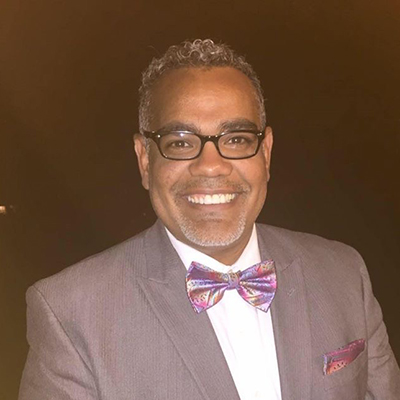
Edwin F. Estévez
Edwin F. Estévez
Like a doctor who cures ailing patients, Edwin Estevéz specializes in healing the woes that leave organizations struggling to function at an optimum level. For more than 25 years, Estevéz has delivered transformational growth as an excellent communicator, an engaging bilingual/bicultural public speaker, and an influential administrator. The Dominican Republic native holds an undergraduate degree in social work from Greenville University, where he also served as provost and senior vice president, a master’s degree from Washington University-St. Louis, and a Ph.D. from St. Louis University. He is the founder and current vice-president of the Estrategia Group, a human and resource capital development company, focused on the creation and incubation of solutions and strategic planning.
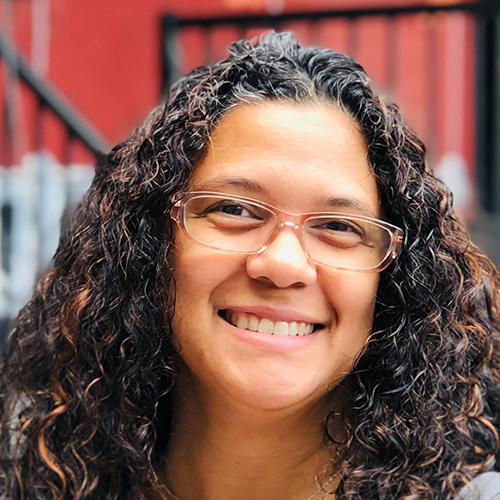
Jessica Estévez
Jessica Estévez
For decades, Jessica Estévez has passionately invested her service and expertise in empowering and developing inclusive leadership and management for hundreds of nonprofit, K-12, higher education and corporate audiences. As the current president of Estrategia Group, Estévez uses her collaborative management skills to help the consulting firm provide ideas, strategies, and solutions. She previously served at the Institute for Community and Justice at Greenville College and at Community Tampa Bay. She has been recognized for her work by the W.K. Kellogg Foundation and the United Nations Intergovernmental Working Group; she was also awarded the USA Network Characters Unite Award in 2010. Born in New York and raised in the Dominican Republic, Estévez holds a master’s from Heller School at Brandeis University and a bachelor’s from Mount Holyoke College, where she graduated at the age of 19.
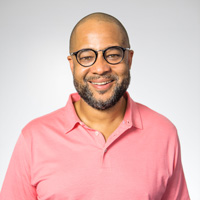
Bryan Loritts
Bryan Loritts
Bryan Loritts serves the Abundant Life Christian Fellowship of Silicon Valley, California, as the senior pastor. He is an award-winning author of six books, including Saving the Saved: How Jesus Saves Us from Try-harder Christianity into Performance-Free Love, which was given the Christianity Today Award of Merit, and Insider Outsider. Loritts co-founded Fellowship Memphis in 2003 and later founded The Kainos Movement, an organization committed to seeing the multiethnic church become the new normal. In addition to his responsibilities as a pastor, Loritts travels extensively preaching the good news of Jesus Christ at conferences and events, as well as serving on the board of trustees for Biola University and PineCove Christian Camps. You can follow Pastor Bryan on Twitter @bcloritts.
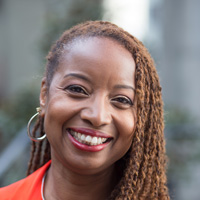
Brenda Salter McNeil
Brenda Salter McNeil
Brenda Salter McNeil serves as associate professor of reconciliation studies at Seattle Pacific University, where she also directs the reconciliation studies program. She has over 30 years of experience in the ministry of reconciliation. Her mission is to inspire, equip and empower emerging Christian leaders to be practitioners of reconciliation in their various spheres of influence. She earned an M.Div. from Fuller Theological Seminary and her doctorate from Palmer Theological Seminary; she has also been awarded a Doctorate of Humane Letters from both North Park University and Eastern University. She is an ordained pastor in the Evangelical Covenant Church and serves on the pastoral staff of Quest Church in Seattle. McNeil is the author of several books, her most recent being Roadmap to Reconciliation.
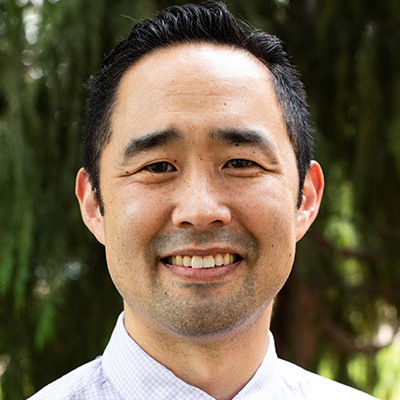
Roger Nam
Roger Nam
Roger Nam serves as the dean of Portland Seminary and professor of biblical studies. He is the author of Portrayals of Exchange in the Book of Kings and the forthcoming book The Theology of the Books of Ezra and Nehemiah. He is presently working on a commentary on Ezra-Nehemiah for the Old Testament Library and co-editing The Oxford Handbook for Wealth and Poverty in the Biblical World. He is a contributor to Working Preacher and a frequent collaborator with the Wabash Center for Teaching and Learning. Nam, who holds a Ph.D. from UCLA, previously worked as a pastor in Seoul, Korea, and as a financial analyst in the Silicon Valley.
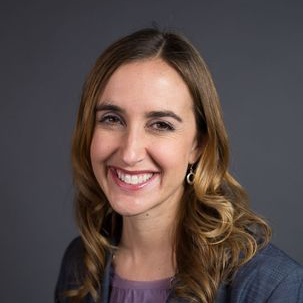
Sarah Visser
Sarah Visser
Sarah Visser began her role at Calvin University as vice president for student life in July 2015. Visser is a graduate of Calvin’s communication arts and sciences program and returned to her alma mater with a breadth of experience in higher education. For 12 years, she served in many leadership roles at Pomona College and Azusa Pacific University, spanning both the academic and student life divisions, including as chair of the department of leadership and organizational psychology at APU. She completed her doctoral studies in higher education at Claremont Graduate University, where her research focused on diversity and change, exploring how institutions build capacity in the area of diversity. She has a passion for engaging scholarship and praxis related to social justice issues, with specializations in gender studies, organizational culture, identity development, class-consciousness, and white privilege.
Registration
The Diversity Conference has reached capacity, and registration is now closed. We are no longer accepting names for the wait list.
Terms & Rules
You may cancel your registration at any time prior to the start of the program. If you must cancel, email conferences@cccu.org. Full refunds will be given for cancellations received by close of business August 19, 2019. Refunds for cancellations received after August 19, 2019, will be issued minus a $50 processing fee. No refunds will be issued for cancellations received after September 16, 2019. Substitutions will be honored at any time with prior notice. No-shows are not refunded.
By attending this event, you agree that your image may be used at any time, without further notification, for printed materials, website, social media, and other marketing purposes. If you would prefer we not use any photo or video that includes you, please email conferences@cccu.org.
Hotel & Travel
We will be suggesting a variety of hotel options that are convenient to George Fox University, and new hotels will be added when confirmed. Please continue to check back for additional hotel options.
La Quinta by Wyndham Woodburn
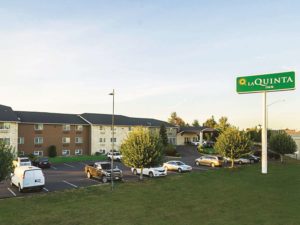
Rate: $84 per night (plus applicable taxes)
Distance: 22 minutes drive to George Fox University
Holiday Inn – Portland I-5 S (Wilsonville)
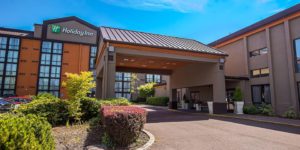
Rate: $159 per night (plus applicable taxes)
Distance: 25-30 minute drive to George Fox University
Comfort Inn & Suites Tualatin – Portland South
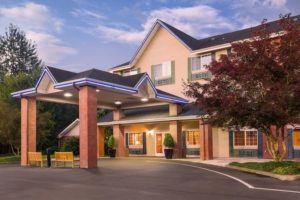
Rate: $110 per night (plus applicable taxes)
Distance: 25-35 minute drive to George Fox University
Embassy Suites Hotel—Portland Washington Square

Rate: $147 per night (plus applicable taxes)
Distance: 30-40 minute drive to George Fox University
Airports
The Portland International Airport (PDX) is approximately a one-hour drive from George Fox University.
